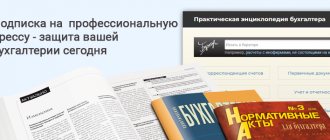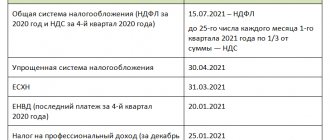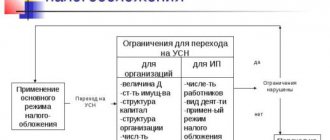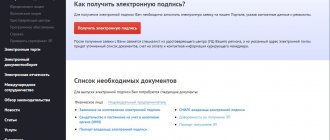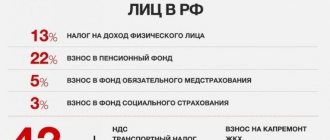Foreigners and their statuses affecting the calculation of contributions
Foreigners are persons who are not citizens of the Russian Federation, but either have confirmation of citizenship of another state or are unable to confirm such citizenship.
They can be in the Russian Federation for three reasons (Clause 1, Article 2 of the Law “On the Legal Status of Foreign...” dated July 25, 2002 No. 115-FZ):
- permanent residence, which requires a residence permit;
- temporary residence, during which a document permitting residence is issued;
- temporary stay when a person enters the Russian Federation with or without a visa, receiving a migration card and issuing a document giving the right to work.
Read more about these reasons in our material .
Foreigners can engage in labor activities:
- under an employment or civil contract agreement;
- as an individual entrepreneur.
To temporarily carry out activities, a foreigner must have a work permit (if he arrived on a visa) or a patent (if a visa is not required). The period of temporary stay in Russia will determine the validity period of the corresponding document. This period may be extended.
Does not make exceptions regarding the compulsory nature of insurance and, accordingly, with regard to the calculation of insurance premiums from foreigners in 2020–2021:
1. Neither paragraph 1 of Art. 7 of the Law “On Compulsory Pension...” dated December 15, 2001 No. 167-FZ, establishing the need for compulsory pension insurance (OPS) for all persons working both under contracts (labor or GPC) and as individual entrepreneurs, except those temporarily in the Russian Federation highly qualified specialists.
2. Neither paragraph 1 of Art. 2 of the Law “On Mandatory Social...” dated December 29, 2006 No. 255-FZ, obliging the implementation of compulsory social insurance (OSI) for disability and maternity of individuals working under employment contracts, except for highly qualified foreign specialists temporarily staying in the Russian Federation. But this law exempts individual entrepreneurs (and, accordingly, foreigners) from OSS (clause 3 of Article 2).
3. Neither art. 10 of the Law “On Compulsory Medical...” dated November 29, 2010 No. 326-FZ, which determines the need to obtain compulsory medical insurance (CHI) for persons working under contracts (labor or GPC) or who are individual entrepreneurs, but who are not classified as highly qualified foreign specialists or foreigners temporarily staying in the Russian Federation.
4. Neither the Law “On Mandatory Social...” of July 24, 1998 No. 125-FZ (clause 2 of Article 5), which extends the obligation for employers to make contributions for injuries and the income of foreigners. These contributions will be accrued in any case, regardless of the status of a foreigner working in the Russian Federation.
That is, insurance premiums for payments to foreigners must be calculated. But these charges have their own nuances, depending on the category of the contribution payer, the basis for the foreigner’s stay in Russia and the qualifications of the foreign specialist.
Foreign workers in Russia
Russian legislation does not prohibit foreign citizens from finding employment in our country. A foreign specialist can come to Russia at the invitation of an employer. Or upon arrival in the country, start looking for vacancies, this is mainly for residents of the CIS and other countries with whom a visa-free regime has been established. To do this, it is enough to issue a labor patent and, by paying advance payments on personal income tax, extend its validity and thereby your legal stay in Russia (for one year), without visiting the FMS.
Contributions for foreigners residing (permanently or temporarily)
According to the provisions of the laws on compulsory insurance, foreigners living (permanently or temporarily) in the Russian Federation are subject to such types of insurance as:
- OPS, regardless of how they work (under an employment or GPC contract or as an individual entrepreneur);
- OSS for disability and maternity when performing work under an employment or GPC contract, but not in a situation where the foreigner is an individual entrepreneur;
- Compulsory medical insurance, regardless of how they work (under an employment or civil employment contract or as an individual entrepreneur), but not when the foreign specialist is highly qualified;
- OSS on injuries when performing work under an employment or civil employment contract.
That is, on the income of foreigners registered under an employment or civil employment contract, you will have to pay all contributions according to the same rules as on the income of citizens of the Russian Federation, if the foreigners do not belong to the category of highly qualified specialists. In relation to a highly qualified specialist, accruals for OPS and OSS will be mandatory.
Read about the rules for paying contributions from payments of highly qualified foreign specialists in ConsultantPlus. To do everything correctly, get trial access to the system and go to the Typical Situation. It's free.
A foreign individual entrepreneur will be the payer of contributions for compulsory medical insurance and compulsory medical insurance.
Generally established tariffs for contributions in 2020–2021 from the salaries of foreigners from the EAEU working under a labor or civil service agreement will be (Article 426 of the Tax Code of the Russian Federation):
- on OPS - 22% from income not exceeding 1,465,000 rubles. (in 2021), and 10% of income above this amount;
- OSS for disability and maternity - 2.9% on income not exceeding 966,000 rubles. (in 2022), contributions will not be accrued above this income;
- Compulsory medical insurance - 5.1% of the entire amount of income.
ATTENTION! Calculate contributions to VNIM for temporarily staying foreign workers at a rate of 1.8%, and do not accrue compulsory medical insurance. Calculate all contributions for refugees, just like for Russians (Letter of the Ministry of Labor dated December 19, 2014 N 17-3/B-620). But make sure they actually have refugee status.
In addition, the fee payer may also experience:
- the obligation to apply additional tariffs due to the special working conditions of a foreign employee (Articles 428, 429 of the Tax Code of the Russian Federation);
- the possibility of using reduced tariffs in accordance with Art. 427 Tax Code of the Russian Federation.
If the employer is included in the list of SMEs, then on the income of a foreign worker exceeding the minimum wage, he has the right to pay contributions at reduced rates.
Read more about reduced contributions in ConsultantPlus. If you do not have access to the K+ system, get a trial online access for free.
Insurance premium rates for foreigners in 2020–2021 for injuries will depend on the type of activity carried out by the employer.
For foreign individual entrepreneurs, the amount of contributions due for payment will be determined in the same way as for individual entrepreneurs who are citizens of the Russian Federation (clause 1 of Article 430 of the Tax Code of the Russian Federation):
1. Annual payment for compulsory pension insurance for income not exceeding 300,000 rubles. for the year, will be equal to 32,448 rubles. in 2022. If the income turns out to be more than 300,000 rubles, an additional 1% will be charged on the amount exceeding 300,000 rubles. The total amount of payments cannot be more than 8 times the fixed annual payment 32,448 × 8 = 259,584 rubles. in 2022.
2. The annual payment for compulsory medical insurance will be determined as a specific amount - 8,426 rubles. in 2022.
To learn about the amount of contributions for injuries, read the article “The rates of contributions for compulsory social insurance against industrial accidents and occupational diseases depend on the type of economic activity .
When and where is it necessary to pay a fixed advance fee to obtain a patent?
Despite the fact that Russian laws allow foreign citizens to use the help of employers in preparing documents necessary for employment, such as a work book, a medical book and an insurance certificate of compulsory pension insurance (SNILS), the foreigner must complete the remaining documents himself. An employer is prohibited from submitting an application on behalf of a foreign employee for a certificate of registration with the tax authorities (TIN) and a patent.
Important!
No one other than a foreign citizen has the legal right to pay a personal income tax contribution in order to obtain a patent instead of the foreigner himself (patent recipient).
Let us turn to the text of paragraph 4 of Article 227.1 of the Tax Code of the Russian Federation. It talks about the time frame within which a foreigner is required to make an advance payment for personal income tax so that he is not denied a patent for employment. In accordance with this article of the Tax Code, it is necessary to transfer funds to pay the fee before the date from which the countdown begins for the duration of the patent, which is currently being issued for the first time, reissued or extended
. That is, if the patent expires on January 1, 2022, and the foreigner wishes to extend its validity by a year (until January 1, 2022), the fee must be paid before January 2, 2022.
As you know, employers are required by law to take on the role of insurance agents for all their employees, including those who come from abroad
.
But, despite the fact that a fixed advance payment for registration of a patent is essentially a prepaid tax on personal income, the foreigner must transfer the funds to the budget independently, not at the expense of the employer. The only thing that the insurance agent (employer) must do in this regard is to calculate the annual amount of personal income tax for the employee
.
Temporarily staying foreign citizens: features of contributions
The imposition of contributions on foreigners temporarily staying in the Russian Federation has its own rules, primarily because among them are highly qualified specialists, whose income under a contract (labor or civil service agreement) is not subject to any contributions, except for contributions for injuries.
The income of other foreign workers registered under the contract will not be subject to contributions to compulsory health insurance, but will be subject to payments to compulsory health insurance and compulsory health insurance. Tariffs for them will generally be equal (Article 426 of the Tax Code of the Russian Federation, letter of the Ministry of Finance of Russia dated February 28, 2017 No. 03-15-06/11189):
- on OPS - 22% from income not exceeding 1,465,000 rubles. (in 2021), and 10% of income above this amount;
- for OSS for disability and maternity - 1.8% from income not exceeding 966,000 rubles. (in 2022), contributions will not be accrued above this income.
At the same time, situations may arise for the contribution payer when he has:
- the obligation to apply additional tariffs due to the special working conditions of a foreign employee (Articles 428, 429 of the Tax Code of the Russian Federation);
- the possibility of using reduced tariffs in accordance with Art. 427 Tax Code of the Russian Federation.
Contribution rates for injuries will depend on the type of activity carried out by the employer.
For individual foreigners with a temporary stay, insurance payments will be determined in the same way as for individual entrepreneurs who are citizens of the Russian Federation and individual entrepreneurs who live (temporarily or permanently) in Russia.
How can a foreigner get back a fixed advance payment for personal income tax?
The payment that a foreign citizen makes when he decides to apply for a patent for employment in the Russian Federation can be returned to himself after signing an employment contract with the employer. This amount is deducted from the amount of personal income tax payable during the validity of the patent
, but such a “deduction” becomes possible only if the following conditions are met:
- A corresponding notification was received from the Federal Tax Service of Russia.
- The foreign citizen has kept a payment document proving that the payment was made.
- The foreigner himself applied for a tax deduction (the refund procedure cannot be initiated by the employer).
Some specific situations regarding contributions from the income of foreigners
Art. 420 of the Tax Code of the Russian Federation, defining the object of taxation of insurance premiums, makes an exception regarding payments to foreigners, in which such contributions will not be charged:
- when a foreigner, under an employment or GPC contract, works in a structural unit of a separate nature, located outside the territory of the Russian Federation (clause 5).
The norm specified in paragraph 5 of Art. 420 of the Tax Code of the Russian Federation, allows not to impose contributions on income accrued to foreigners located outside the territory of the Russian Federation and performing work under a civil process agreement remotely (letter of the Federal Tax Service of Russia dated 02/03/2017 No. BS-4-11 / [email protected] ).
However, if income from a foreign company is received by a foreign employee who is temporarily in Russia, working in the representative office of this employer on the territory of the Russian Federation and who is not a highly qualified specialist, then his income must be paid contributions to OPS and OSS for disability and maternity (letter from the Ministry of Finance of Russia dated 02/06/2017 No. 03-15-05/6079).
From the income of a foreigner temporarily staying in the Russian Federation who has received refugee status, unlike other foreigners with a temporary stay, additional deductions will be made for compulsory medical insurance using the usual tariff for the Russian Federation of 5.1% (letter of the Ministry of Labor of Russia dated February 17, 2016 No. 17-3/OOG- 229).
To learn whether to charge contributions if a citizen of the Russian Federation works abroad, read the material “Distance worker abroad: we pay contributions, but we don’t pay personal income tax .
All details of the calculation and payment of insurance premiums, including against accidents, for payments to foreign employees are discussed in detail in the Ready-made solution from ConsultantPlus. Trial access to the system can be obtained for free.
How to calculate a fixed advance payment for personal income tax
Important!
Registration of a patent to search for work on the Russian labor market is relevant only for foreign citizens who came to Russia without first obtaining a visa (in a visa-free regime). If a citizen of a foreign state requires a visa to enter the Russian Federation, he can find employment in the Russian Federation only after receiving a work permit. The visa-free regime is valid only between Russia and countries participating in international treaties related to simplification of the migration order.
The amount of the advance payment for personal income tax for registration of a patent is fixed. It is spelled out in the text of paragraph 2 of Article 227.1 of the Tax Code of the Russian Federation and currently amounts to 1,200 rubles
. This is the base size without indexing. As for indexation, the contribution amount increases due to the following coefficients:
| № | Indexation coefficients | Details |
| 1 | Deflator coefficient | Every year the authorities approve a new deflator coefficient |
| 2 | Regional coefficient | Each subject of the Russian Federation has its own coefficient (changes from year to year). The size of the coefficient depends on how much a specific region of Russia needs labor (the more employees are needed, the cheaper the patent for foreigners). If in some region it is not possible to find information about the value of the coefficient, then its value is assumed to be equal to one. See paragraph 3 of Article 227.1 of the Tax Code of the Russian Federation. |
Payment of a fixed payment for personal income tax is a mandatory condition for obtaining a patent for the employment of a foreign citizen in Russia. Until a citizen of one of the CIS countries transfers a fixed payment amount to the budget and presents a personal income tax payment receipt to the Main Department for Migration of the Ministry of Internal Affairs of Russia, a patent will not be issued to him (even for a minimum period of 1 month)
.
Results
Foreigners can be in the Russian Federation in the status of residents (temporarily or permanently) or temporarily staying. For the first group, insurance premiums will be calculated in the same manner as for citizens of the Russian Federation. That is, at generally established, additional or reduced tariffs, if the foreigner is registered under a contract (labor or civil process agreement). An exception will be highly qualified specialists, from whose income they will not have to make contributions to compulsory medical insurance.
No accruals will be made on the income of highly qualified specialists temporarily located in the Russian Federation and working under a contract (labor or civil employment contract), except for contributions for injuries. And the income of other foreign workers temporarily staying in the Russian Federation and working under a contract must be subject to contributions to compulsory health insurance and compulsory social insurance, applying a special rate for compulsory social security for disability and maternity.
Contributions from the income of foreign individual entrepreneurs will be calculated according to the algorithm for calculating payments for individual entrepreneurs in force in the Russian Federation, regardless of their status.
Sources:
- Federal Law of July 25, 2002 N 115-FZ “On the legal status of foreign citizens in the Russian Federation”
- Federal Law of December 15, 2001 N 167-FZ “On Compulsory Pension Insurance in the Russian Federation”
- Federal Law of December 29, 2006 N 255-FZ “On compulsory social insurance in case of temporary disability and in connection with maternity”
- Federal Law of November 29, 2010 N 326-FZ “On Compulsory Health Insurance in the Russian Federation”
- Federal Law of July 24, 1998 N 125-FZ “On compulsory social insurance against industrial accidents and occupational diseases”
- Tax Code of the Russian Federation
You can find more complete information on the topic in ConsultantPlus. Free trial access to the system for 2 days.
Personal income tax rates for foreigners
The tax rate on income received in favor of a foreign citizen from Russian sources is 30%.
In practice the following rates are used:
| Category | Bet size |
| Tax residents | 13% from all income |
| Foreign citizens with refugee status, with a temporary residence permit, from the EAEU countries | 13% from wages, 15% from dividends |
| Dividends of a legal entity of the Russian Federation, the founder of which is a citizen of another state permanently residing in his homeland | will be reduced by 15%, and all other income by 30% |
If the status of a foreign worker changes during a calendar year from non-resident to resident, then the previously withheld personal income tax will be recalculated at a preferential rate of 13%.
Payroll tax
According to the legislation of the Russian Federation, transfers required for compulsory social insurance for employees are paid by the employer. Only personal income tax is deducted from the salary received. This rule applies to all categories of employees - Russians and foreigners.
Expert opinion
Accordingly, each hired foreigner must remit special income tax from the salary received. Such transfers are paid both by the mercenary and the founder of the economic community. In all situations, regardless of activity, the transfer amount must be equal to 30%.
Employee of the Federal Tax Service, Yekaterinburg, Semenov Ivan Stepanovich.
EAEU citizen status
Article 73 “Taxation of personal income” of the Treaty on the EAEU provides a special rule, according to which in the EAEU member countries (Belarus, Kazakhstan, Armenia, Kyrgyzstan and the Russian Federation), income from the first day of work is taxed at the same rate as for citizens a state in which citizens of other EAEU states are employed.
Thus, when working in Russia, EAEU citizens pay personal income tax, like Russians - tax residents, at a rate of 13% and have a privilege compared to foreigners from other countries - non-residents, whose income is taxed at a rate of 30%.
Tax status of an employee and personal income tax in “1C: Salary and Personnel Management 8” (rev. 3)
The 1C: Salary and Personnel Management 8 program, edition 3, provides the ability to calculate personal income tax in accordance with the Treaty on the EAEU. The ability to manage the tax status of an employee in the program allows you to recalculate personal income tax.
Example 1
| Employee A.M. Klubnik, a citizen of Belarus (part of the EAEU), came to the Russian Federation and has been working in Russia since July 10, 2018 under an employment contract. |
When applying for a job in the 1C: Salaries and Personnel Management 8 program, edition 3, in the employee’s card, click on the Personal data link in the Country Citizenship field, select BELARUS. There are less than 183 days left until the end of the year, and A.M. Strawberries will not receive resident status in the 2022 tax period and, therefore, will not receive standard personal income tax deductions. From the first day of work, a rate of 13% is applied to calculate personal income tax in accordance with Article 73 of the Treaty on the EAEU. For correct calculation in the employee’s card, using the Income Tax link, in the Status field, you should select Citizen of a country that is a party to the Treaty on the EAEU (Fig. 1).
Rice. 1. Filling out the data in the employee card
Payment of compensation to HQS upon dismissal. Is it possible to apply the benefit under clause 3 of Article 217 of the Tax Code of the Russian Federation?
As a general rule, in terms of personal income tax, there is a benefit provided for in clause 3 of Article 217 of the Tax Code of the Russian Federation. Thus, all types of compensation payments established by the legislation of the Russian Federation (within the limits established in accordance with the legislation of the Russian Federation), associated, in particular, with the dismissal of employees, are not subject to personal income tax, with the exception of compensation for unused vacation, and also with the exception of the amount of payments in the form severance pay, average monthly earnings for the period of employment, compensation to the manager, deputy managers and chief accountant of the organization in the amount exceeding in general three times the average monthly earnings or six times the average monthly earnings for workers dismissed from organizations located in the Far North and equivalent regions to their localities (clause 3 of Article 217 of the Tax Code of the Russian Federation). Amounts of the above payments upon dismissal that exceed three times the amount (six times the amount) of the average monthly earnings are subject to personal income tax in accordance with the established procedure.
In this regard, the question arises - what personal income tax rate is applied when paying compensation to a foreign employee - HQS upon dismissal? Is it possible not to tax these payments within the limits of three times the amount (six times the amount) of the average monthly earnings?
When a HQS is dismissed by agreement of the parties, compensation payments are not subject to personal income tax in the general manner. Upon dismissal of a HQS, by agreement of the parties, compensation payments are exempt from personal income tax. The amount not subject to personal income tax should not exceed, in general, three times the average monthly earnings. And for the regions of the Far North - six times the average monthly salary.
The Tax Code of the Russian Federation does not provide for any specifics for calculating personal income tax upon dismissal of a HQS.
WHAT POSITIONS ARE NOT SUBJECT TO QUOTAS WHEN ADMISSIONING FOREIGN EMPLOYEES FROM FAR ABROAD?
Important!
When paying HQS income, a personal income tax rate of 13% is applied to income that is directly related to work activity. This rate applies, inter alia, to compensation payments made upon dismissal of an employee in accordance with clause 1 of Art. 77 of the Labor Code of the Russian Federation in the amount exceeding three times the average monthly earnings (Letters of the Federal Tax Service of the Russian Federation dated March 15, 2019 No. BS-4-11/ [email protected] , Ministry of Finance of the Russian Federation dated October 8, 2018 No. 03-04-06/ 72202).
When should the Tax Code of the Russian Federation be applied, and not the norms of the Treaty on the EAEU
The regulatory authorities of the Russian Federation believe that the personal income tax rate for employees from the EAEU countries at the end of the year still depends on their status, which does not contradict the letter of the Treaty on the EAEU. The Ministry of Finance of Russia, in letter No. 03-04-06/3032 dated January 22, 2019, reminds that the procedure for determining tax status applies to individuals regardless of citizenship. For the case when, by the end of the year, a citizen of the EAEU acquires the status of a tax resident of the Russian Federation, a revision of the tax status makes it possible to apply tax deductions and recalculate personal income tax in connection with this. Obviously, if a citizen of the EAEU does not have time to obtain tax resident status during the tax period, then, in accordance with the requirements of the Ministry of Finance, at the end of the year, personal income tax is recalculated at a rate of 30%. If possible, the tax should be withheld, and if there is no corresponding income, the impossibility of withholding should be reported in the report on Form 2-NDFL.
For citizens who arrived in the Russian Federation after 07/02/2019 (183rd day of the year), it will no longer be possible to become a tax resident in the current tax period, since there are less than 183 days left in the year. From the first day of work, a 30% rate cannot be applied to their income - this will violate the requirements of an international treaty, and at the end of the tax period, a 13% rate will contradict the requirements of the Ministry of Finance. In addition, the inability to foresee the future must be taken into account: the employer does not know whether the employee will be working for him at the end of the tax period and whose responsibility it will be to determine the tax status at the end of the tax period.
At the same time as explaining the need to recalculate personal income tax at the end of the tax period in accordance with the tax status, the Ministry of Finance of Russia in its letter dated January 22, 2019 No. 03-04-06/3032 reports that the specified letter does not contain legal norms, does not specify regulatory requirements and is not regulatory legal act, has an informational and explanatory nature and does not prevent taxpayers, tax authorities and tax agents from being guided by the norms of the legislation of the Russian Federation on taxes and fees in an understanding that differs from the interpretation set out in the letter.
The letter of the Federal Tax Service of Russia dated November 28, 2016 No. BS-4-11/ [email protected] reflects the opposite position that there is no need to recalculate the tax.
Neither the opinion of the Russian Ministry of Finance nor the Federal Tax Service of Russia can be considered more or less beneficial for EAEU citizens. A revision of the tax status will lead to an increase in the personal income tax rate on non-resident income, and the absence of a revision will entail the non-application of deductions due to residents.
| 1C:ITS For recommendations on choosing the option for calculating personal income tax of EAEU citizens for tax agents who are cautious and ready to defend their position, see the “Legislative Consultations” section. |
Regardless of the choice of calculation option, at the end of the tax period, the reporting should reflect the actual data - the personal income tax rate, citizenship and tax status of the individual.
Thus, in the case when a non-resident citizen of the EAEU is taxed at a rate of 13%, the 2-NDFL certificate should indicate the citizenship of the non-resident of the Russian Federation and the taxpayer status code “2”.

